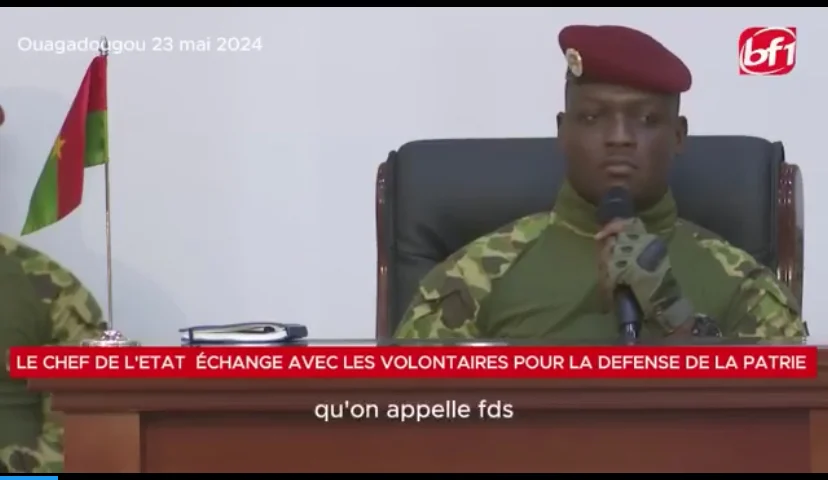A storm of criticism has hit Kenyan journalist Collins Nabiswa after he publicly claimed that a recent speech by Burkina Faso’s President Ibrahim Traoré was fake and generated by artificial intelligence. The problem? The speech was very real—and verifiable.
Nabiswa, who works with ‘BBC Monitoring’ and ‘BBC Disinformation,’ stirred controversy when he stated on social media that a circulating video of President Traoré addressing Burkina Faso’s Volontaires pour la Défense de la Patrie (VDP) was AI-generated propaganda.
He even alleged that the Burkinabé government had enlisted influencers to spread digitally fabricated content.

But the facts paint a very different picture.
A full video of the event, streamed and archived by local broadcaster BF1 Télévision, clearly shows President Traoré delivering the speech in Ouagadougou on May 23, 2024.
In the footage, Traoré is seen speaking passionately to hundreds of VDP fighters about unity and national security—directly contradicting Nabiswa’s assertions.
What seems to have added to the confusion is the English version of the speech that was circulated online.

That version used AI translation and voice-matching tools to help non-French speakers understand the president’s message. But critics say this is no excuse to label the original content as fake.
Despite being shown irrefutable proof—links to the full speech in French, timestamps, and footage from local media—Nabiswa doubled down, insisting there was no such speech “in French or in any local language.”
That claim, observers say, not only undermines his credibility but raises larger concerns about misinformation coming from individuals tasked with combating disinformation.
For many, the incident is ironic: a BBC journalist from its disinformation team spreading disinformation himself.


